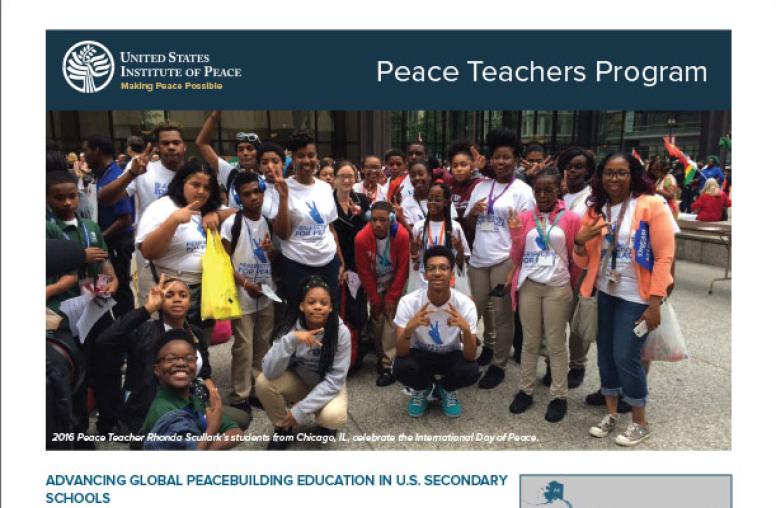 Education & Training
Education & Training
The U.S. Institute of Peace works with educational institutions to increase their ability to teach peace and conflict studies. The Institute develops curricula and conducts workshops on syllabus design and the pedagogy of peace and conflict resolution for universities in conflict-affected areas as well as for other learning institutions.
Featured Publications

Amid Central Asia’s Struggle with Extremism, Uzbekistan Promotes Pluralism
An Islamic State affiliate’s recent terror attacks in Russia, Iran and Afghanistan rang alarm bells in Central Asian capitals. Almost all the perpetrators of ISIS-Khorasan’s (ISIS-K) attacks were citizens of Central Asia, rekindling considerable concern over the threat of homegrown violent extremism in the region.

Marco de Construcción de Paz Centrado en la Juventud
El Marco de Construcción de Paz Centrado en la Juventud es una guía funcional que propone un enfoque factible para centrar a la juventud en intervenciones de construcción de paz. La guía pone en práctica el concepto de la participación de jóvenes, partiendo de principios básicos y pasando a guías prácticas y medidas de acción específicas para lograr una participación juvenil significativa en diferentes etapas de un proyecto de construcción de paz.

Peace Teachers Program
The U.S. Institute of Peace’s (USIP) Peace Teachers Program is rooted in the conviction that educators can be pivotal in bringing themes of global conflict and peace into their classrooms, schools, and communities.
Current Projects

Border Security Training Program
USIP’s Border Security Training Program trains police officers from Kenya’s Border Police Unit and General Service Unit who serve along the Kenya-Somalia border. The program increases the capacity of Kenyan police to manage conflicts nonviolently and to effectively partner with communities along the Kenya-Somalia border in order to more effectively interdict terrorist suspects and reduce justice-related drivers of violent extremism in Northeast Kenya.

Conflict Management Training for Peacekeepers
In 2004, the U.S. Department of State attended a lessons-learned conference in Rwanda, where commanders returning from Darfur reported that much of their peacekeeping work involved some form of negotiation. They expressed the need for their successors to receive training in conflict management skills in order to succeed, which their pre-deployment training dedicated very little focus to at the time. To fill this training gap, the U.S. Department of State approached USIP in 2008 to deliver conflict management trainings for peacekeepers as part of the U.S. contribution to peacekeeping in Africa.

Supporting the International Diplomatic Academy of Tunisia
USIP has recently launched a partnership with the new International Diplomatic Academy of Tunis, which is mandated to prepare current and future diplomats with the diverse skills in communication, facilitation, mediation, negotiation and management that enable success in international diplomatic contexts.